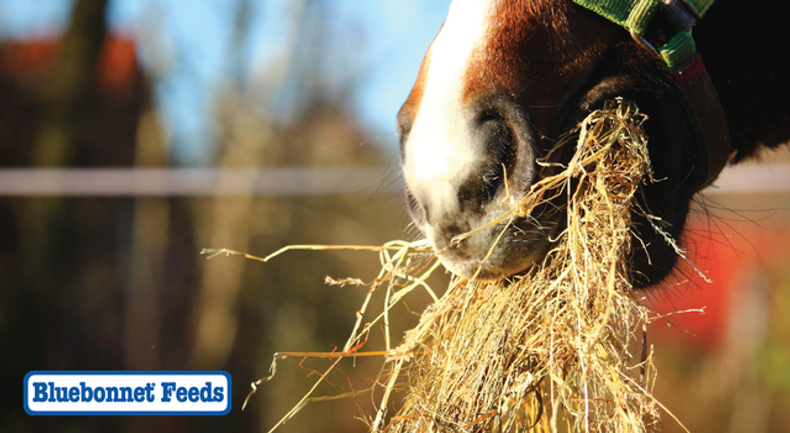Here are a few general recommendations for hard keepers. These may sound simple but can have a profound impact on how the horse utilizes nutrition.
- Have teeth evaluated by a reputable equine dental specialist at least every 12 months. Even little things like an under bite or overbite (which most horses have) can cause hooks and ramps to develop on the molars where we can’t see. These over growths can cause the teeth to lock up when chewing or cause ulcers on the cheeks and tongue. All of this can cause a horse to lose desire to eat so they take in less food than they actually need. It can also cause them to shorten the range of motion while chewing so they don’t get a good grind and breakdown of food before swallowing. This means the digestive system can’t extract as many nutrients which can lead to a horse being a hard keeper.
- Provide 24/7 access to forage. Horse are designed to eat forage (hay and/or pasture) continuously throughout the day and night. If they spend parts of the day or night on an empty stomach they can start to develop ulcers and anxiety. Both of which can cause a horse to be a hard keeper.
- If you already offer 24/7 access to forage, and you have properly addressed teeth conditions, you should consider adding some alfalfa to the diet. Even a couple pounds morning and night on top of the grass hay or pasture already being offered can make a big difference in improving body condition.
- Consider your horse’s stress level. Stress from training, hauling, being in a stall, missing buddy horses, drugs, antibiotics, surgeries, etc. can all cause dysbiosis (imbalanced microbial populations in the gut). The microbes in the hind gut are responsible for turning fiber into energy (calories) for the horse. If the microbes are out of balance the horse may become a hard keeper even though they are getting plenty to eat.

